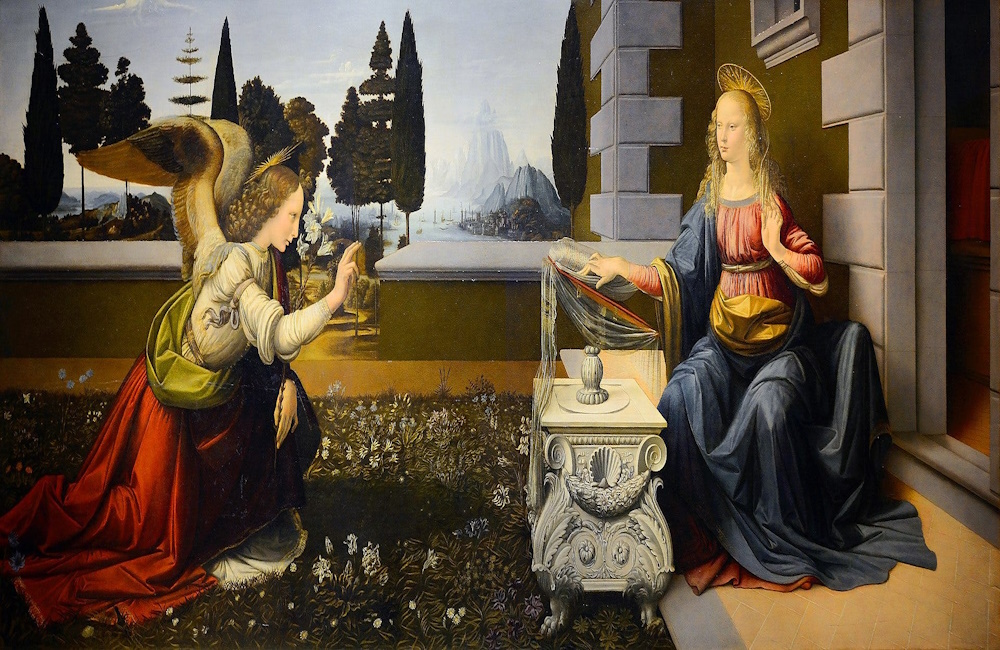In this article, we will analyze the miraculous conceptions of Isa (Jesus in Islam) as described in the Quran and Jesus as described in the Bible. Both texts offer unique perspectives on these divine events, revealing deep theological insights.
Qur’an 66:12
Allah sent the angel Jibril to Maryam, and he came to her in the shape of a man in every respect. Allah commanded him to blow into a gap of her garment and that breath went into her womb through her private part; this is how `Isa was conceived. (Sahih International)
And Maryam (Mary) daughter of Imran, who kept safe her private part, (i.e., safeguarded) so We breathed in it of Our Spirit, and she sincerely (believed) in the Words of her Lord, and His Books; and she was one of the devout. (Dr. Ghali)
The Miraculous Conception of Isa in the Quran:
In the Quran, the conception of Isa is depicted as a miraculous event. According to Islamic tradition, the Angel Gabriel (Jibril) appeared to Maryam (Mary) and blew into her private part, leading to her conceiving Isa without any male intervention. This act emphasizes the divine nature of Isa’s birth and the purity of Maryam. However, some Islamic scholars have recognized the sensitive nature of this description and have attempted to replace the exact term with more general language to avoid potential controversy. Despite these efforts to soften the wording, the original text clearly indicates that the act of blowing was the method through which this divine miracle occurred.
The Conception of Jesus in the Bible:
The Bible describes the conception of Jesus as a miraculous event, central to Christian belief. According to the Gospel of Luke, the angel Gabriel visits Mary and informs her that she has been chosen by God to conceive a son, Jesus. When Mary questions how this can happen since she is a virgin, Gabriel explains that “the Holy Spirit will come upon you, and the power of the Most High will overshadow you.” This statement highlights the divine nature of Jesus’ conception, with the Holy Spirit playing a crucial role. The phrase “overshadow you” signifies God’s protective presence, emphasizing the sanctity and divine intervention involved. The conception is portrayed as fulfilling the prophecy of a virgin birth from Isaiah 7:14, marking it as a profound and holy event. This moment signals the beginning of a new covenant between God and humanity, with Jesus at its center. The emphasis on the Holy Spirit and the virgin birth distinguishes the Christian narrative, underscoring the belief in Jesus’ unique identity as both fully divine and fully human, the Son of God.
Conclusion:
The Quranic description of Isa’s (Jesus’) conception, where the angel blows into Maryam’s private parts, carries explicit sexual connotations. This portrayal suggests that such an act could lead to the conception of a prophet, which introduces a troubling contradiction. If such an act were truly a method of conception, it would imply a divine status beyond that of a mere prophet, suggesting an elevated role for Isa that conflicts with Islamic teachings.
Moreover, this description contrasts sharply with the Christian account in which the Holy Spirit overshadows Mary, signifying a sacred and respectful divine act. This discrepancy suggests that Muhammad might have been influenced by distorted or incomplete stories about Jesus, rather than by an accurate understanding of the Gospel accounts. The portrayal of Isa’s conception in the Quran might reflect a misinterpretation of Christian texts, compounded by the influence of sexual themes prevalent in the Quranic context.
The focus on such explicit imagery in the Quran could be indicative of Muhammad’s own perceptions or sexual fantasies rather than a faithful depiction of the miraculous event described in the Gospels. This suggests that the Quranic narrative might be influenced by a blend of distorted stories and personal biases, rather than a genuine reflection of the miraculous conception of Jesus.
